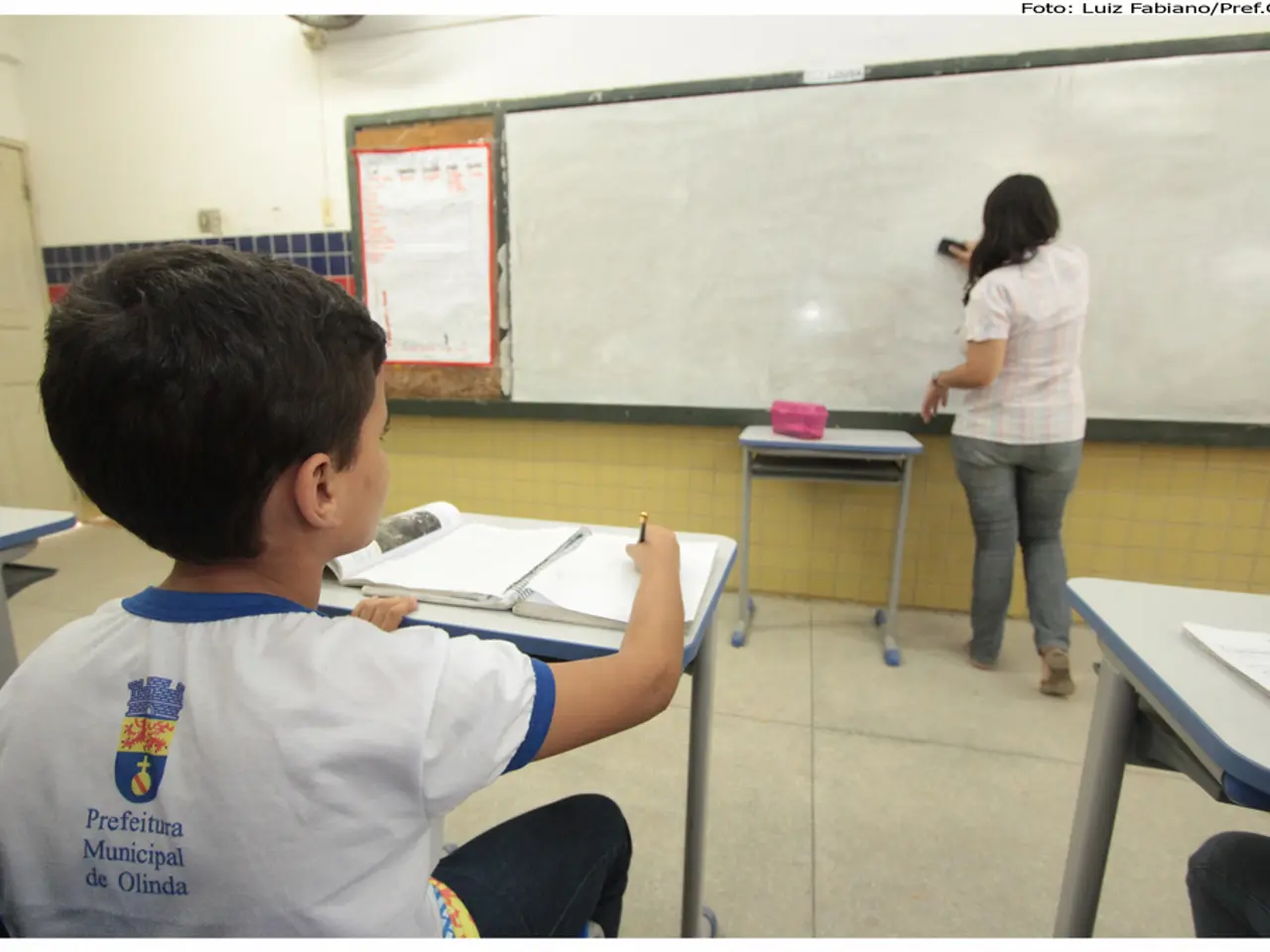Rampant AI-assisted cheating in American schools has led to a resurgence of the use of old-school blue books.
In the rapidly evolving world of education, American schools are grappling with the rise of AI-assisted cheating, particularly with the introduction of tools like ChatGPT. To counteract this trend, many institutions are turning to traditional methods, such as handwritten exams, to maintain the credibility and integrity of academic assessment.
Sales of blue books, the small, lined notebooks used for students to write analytical essays within a short time frame, have surged at universities across the nation. At the University of California, Berkeley, blue book sales have increased by 80% over the past two academic years, a trend that has also been observed at Texas A&M University, the University of Florida, and various large public universities, as reported by The Wall Street Journal.
The resurgence of blue books can be attributed to the rise of AI tools in education. The process of writing a paper outside of class cannot be replicated in a blue book exam, making it more difficult for students to use AI assistance. Philip D. Bunn, an assistant professor at Covenant College in Georgia, believes that the traditional essay cannot be replaced by in-class essays written in blue books.
In response to the AI-assisted cheating, schools have implemented several measures to maintain academic integrity. Many have shifted back to traditional, handwritten assessments, often called "blue book" exams, which make it more difficult for students to use AI tools for their work. Some educators have also adopted oral exams or require students to explain their reasoning out loud, making cheating harder.
Teachers are increasingly assigning work that documents the process, such as annotated drafts, recorded brainstorming sessions, or peer reviews. These methods make it easier to identify genuine student work versus AI-generated content. Some universities are developing or using in-house tools to analyze assignments for their vulnerability to AI cheating, suggesting ways to make assignments more challenging for AI to complete.
While the use of blue books as a means to demonstrate understanding has become more relevant in the era of AI tools, some educators advocate for integrating AI literacy into the curriculum. The goal is to teach students how to use AI responsibly, distinguishing between inspiration and plagiarism, and understanding when AI use is appropriate.
The consensus is that the solution will likely involve a blend of traditional (analog) and digital tools, with a focus on preserving academic integrity while preparing students for a technology-driven workforce. Initiatives like OpenAI’s partnership with the American Federation of Teachers aim to train hundreds of thousands of educators by 2030 in AI fluency, ensuring they are equipped to guide students in the ethical and effective use of AI.
Despite the challenges, the blue book experience remains challenging for students, with small pages, large ruled lines, and a generally unpleasant writing experience. However, America's educators are not out of the woods yet, not even close. More drastic measures, such as the formulation of new laws and regulations around AI use, may need to be taken to halt the onset of America's aggressive stupidification.
A recent survey found that 89% of college students have admitted to using ChatGPT to complete a homework assignment. This alarming statistic underscores the need for schools to adapt quickly, ensuring students gain the skills and values needed for the future, while maintaining the credibility and integrity of academic assessment.
- Gizmodo reported an increase in the sales of blue books at universities across the nation, attributing it to the rise of AI tools in education.
- To maintain academic integrity, many schools have shifted back to traditional, handwritten assessments, also known as "blue book" exams, which make it more difficult for students to use AI-assisted cheating.
- The consensus in education is that the solution will likely involve a blend of traditional (analog) and digital tools, with a focus on integrating AI literacy into the curriculum, teaching students how to use AI responsibly.
- The use of new laws and regulations around AI usage may need to be considered as more drastic measures, to halt the onset of a trend suggesting America's aggressive reliance on AI-assisted cheating in education.




